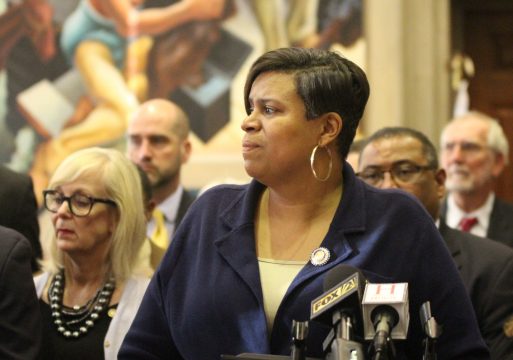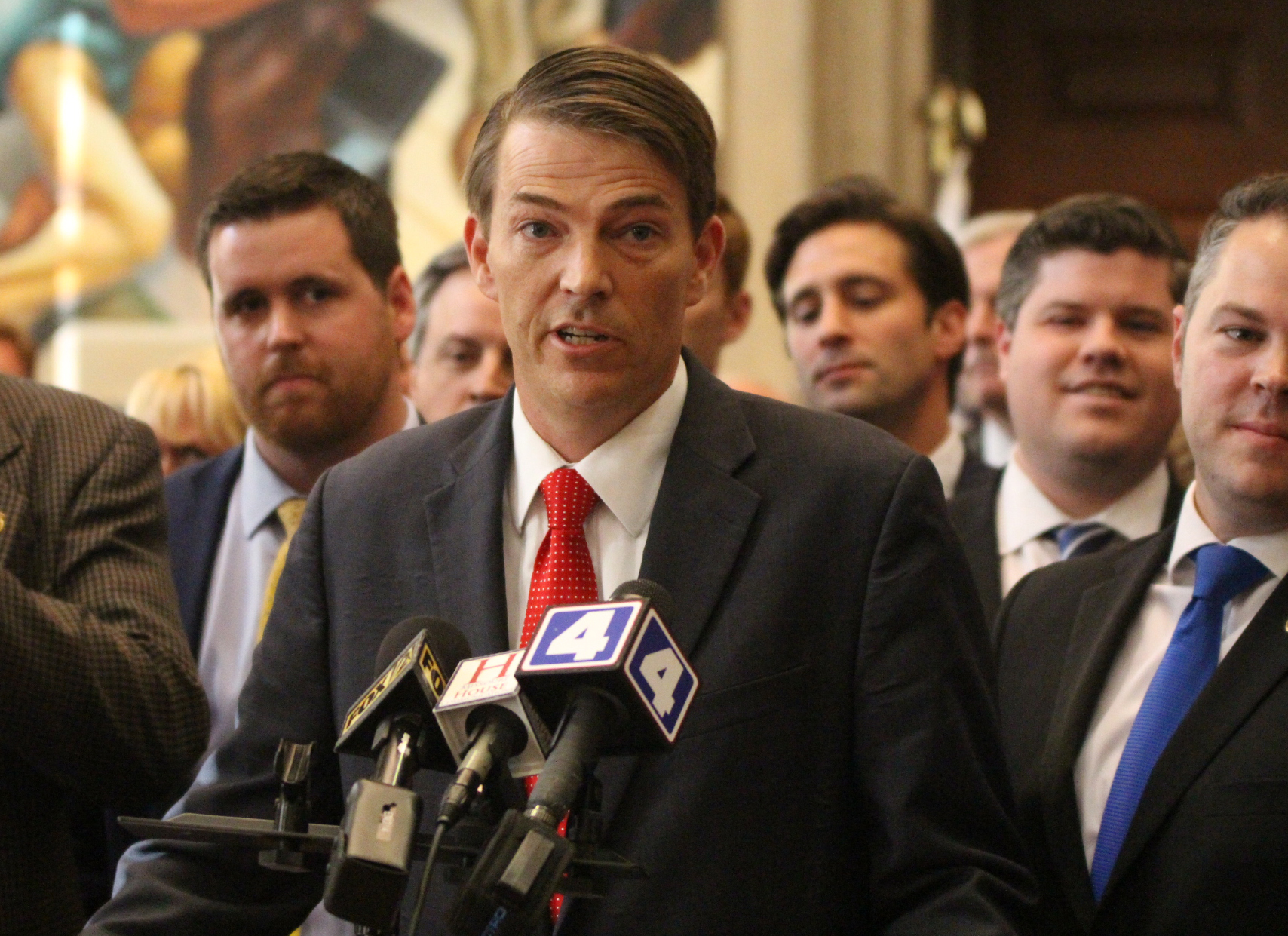House Democrats cite dysfunction for low number of bills
Just moments after House Democrats scored two unexpected victories in the House, Speaker Todd Richardson emerged into the House Lounge with his caucus in tow to explain the major policy changes the Republican supermajority has instituted since Jan. 4.
“For nearly a decade, Missouri’s conservative majorities have worked to pass conservative reforms and create real results for Missouri families,” Richardson said in a press conference after session. “On numerous fronts, we’ve been blocked. But this year we sent a message loud and clear that once again Missouri is open for business.”
Some of those measures included tort reform legislation like the collateral source rule change and the Daubert expert witness standards bill, labor reform measures like right-to-work, and regulatory reform as many pieces of legislation changing licensing requirements made it to Gov. Eric Greitens’ desk before sine die.
On top of that, the budget will fund the state’s foundation formula for the first time since its inception, and both chambers managed to agree on a REAL ID bill that will ensure Missourians who want to can continue to ride on airplanes and visit military bases.
“We set out this session to try to create one of the most competitive economic climates, and if you look at the number of things we sent to the governor’s desk, Missouri will have one of the most aggressive, competitive economic climates anywhere in the country,” Richardson said.
However, many questions asked by reporters dealt with how the Republican caucus, which holds a supermajority in both chambers of the General Assembly could not seal the deal on a few final, crucial issues.
For the entirety of the week, Budget Chair Scott Fitzpatrick has derided the Senate substitute language in HCB 3, which performs a fund sweep on various trust funds to provide money for the Senior Services Protection Fund to maintain in-home services for 8,000 seniors and disabled. Five minutes before 6 p.m., the constitutionally mandated time session must come to a close, Fitzpatrick brought the measure up for a vote and spoke against it, believing it could spark a possible constitutional crisis.
“I’m not voting for it because I think it’s against my oath of office to do so,” Fitzpatrick said.
But the body voted for the measure 83-67. Democratic Reps. Deb Lavender, Peter Merideth, and Crystal Quade had argued passionately for the measure and worked long nights trying to determine if this plan was a suitable option for the budget. Lavender said while she was surprised Fitzpatrick brought the measure up for a vote, she was not ultimately surprised at the result of that vote.
“I knew there were a lot of members on that side of the aisle that knew they had seniors in their district this was going to affect,” Lavender said.
After the vote came down, Lavender was seen wiping tears from her eyes.
The other loss was less of a blow to Republicans. After the Senate spent the better part of the day embroiled in procedural motions to pass and previous question HB 1194 and 1193, which would mandate municipalities cannot raise their minimum wages over the state level, the House quickly pushed the bill through fiscal review and passed the measure. However, they did not pass the emergency clause, falling just a single vote shy at 108-42. Some argue the lack of that emergency clause could set the state up for lawsuits.

Multiple other priorities failed to make it past the Senate; including Rep. Holly Rehder’s prescription drug monitoring bill, prevailing wage repeal, a jobs bill for the bootheel, and ethics reform – like Rep. Justin Alferman’s lobbyist gift ban bill. The last weeks of session in the House were often rife with verbal jabs on the floor at the Senate’s dysfunction. However, Richardson demurred that the discord between the chambers was anything of note.
“We’re set up to have disagreements back and forth between the House and Senate. It’s part of the process,” Richardson said. “I continue to have a very good working relationship with people on the other end of the building… All in all, the relationship between the House and the Senate is as good as I’ve seen it in the time that I’ve served here.”
Democrats, on the other hand, made dysfunction the center point of their post-session comments. Minority Floor Leader Gail McCann Beatty said the Republican supermajority caucus passed only 59 bills, not including the 16 budget bills, the lowest figure for legislation since 2000 when the General Assembly passed only 67 bills. In a way for Democrats, that was its own kind of victory.
“If Missourians can be thankful of anything from this session, it’s that the damage was mitigated due the majority party’s inability to govern,” Beatty read from a statement. “As bad as this session was for worker rights and victims of illegal discrimination, things could have been much worse were it not for the GOP’s total dysfunction.”
However, the session was anything but successful for Democrats. SB 43, Sen. Gary Romine’s controversial discrimination measure, passed through the House Friday as many Democrats refused to even vote on the bill. Right-to-work was finally signed into law without the bulwark of Gov. Jay Nixon’s veto pen, and those aforementioned tort reform measures that Democrats say will close the doors of Missouri’s courtrooms to the average citizen made it through the body as well.








